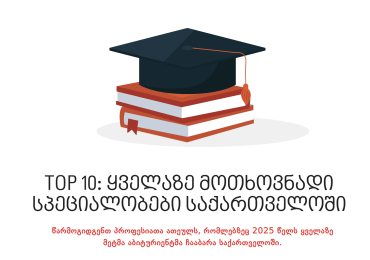JSC Liberty Bank (the “Bank”) was acquired in September 2009 by Liberty Capital, a wholly-owned subsidiary of Liberty Investments Holding B.V., a Dutch investment company founded by the late Dinu Patriciu and Lado Gurgenidze. Subsequently, in October 2017, the Bank announced the change of control, whereby the European Financial Group B.V. (EFG), a company established and organized under the laws of the Kingdom of the Netherlands, purchased 74.64% of equity interest in the bank. The ultimate beneficial owners of the bank are Irakli Rukhadze (US Citizen), Ben Marson (UK citizen) and Igor Alexeev (US Citizen). But this is the new beginning for the bank and a new story, which focuses on the period between September 2009 and November 2017.
In the six years that have passed since it was acquired by Liberty Capital, the bank has undergone the most dramatic transformation in modern Georgian banking history. The key to such performance was the team of brilliant, talented, young Georgians, handpicked personally by Lado Gurgenidze, who under his leadership and mentorship commenced the turnaround of the bank.
At the time of the acquisition (September 2009), the bank was essentially insolvent after two years of heavy losses due to poor lending and operating decisions under its previous management. The bank has operated under the close oversight of the central bank since 2008, with restrictions imposed on lending and investments, as it had been in violation of virtually all prudential requirements. As of YE 2008 and 30 September 2009, the bank’s Tier I capital (BIS) stood at negative ₾21.2 million and ₾15.8 million respectively, due to net losses of ₾45.7 million in 2008 and ₾5.4 million in 2009. NPLs to gross loans ratio reached 40.8% as of December 31, 2009. The ₾45.7 million net loss in 2008 was mostly driven by extremely high operating expenses, whereas the ₾5.4 million net loss in 2009 was mostly the result of provisions and write-offs of non-performing legacy exposures. The bank had not been in a position to lend meaningfully, and, by end of 2008, its liquidity had gotten to such a low level, as to make normal banking operations nearly impossible, with funds transfers regularly delayed for several days due to bank’s lack of liquidity. While the Georgian banking sector overall has withstood the financial crisis and the economic downturn in the aftermath of the war with Russia rather well, by end of 2008, the bank became a serious threat to sector stability, given its systemic nature as the distributor of state pensions, welfare payments and payroll services to approximately 1.5 million people. All previous attempts to find a competent, well-capitalized buyer for the bank had failed up until that point.
From 2009 until October 2017, the shareholders of the bank invested ₾77.0 million of equity capital, and the bank, through dividend payments and share buybacks, returned ₾51.4 million to its shareholders.
The bank had the largest branch network and the largest retail client base, serving 1.6 million individuals through 698 branches and service outlets. From September of 2009 through September of 2017, the bank opened 142 new branches and installed 347 new ATMs in an effort to expand its retail footprint. In July 2010, the bank announced a significant boost to its distribution network by means of covering all remote areas of the country with a fleet of specialized minivans equipped to function as mobile bank branches – an innovative approach not previously tried in Georgia. As of September of 2017, 114 specialized minivans were rolled out. The bank operated banking network branded as PayExpress with 265 service outlets as of September 2017. Internet banking, which the bank had historically lacked, was launched in June 2010 (upgraded significantly in 2016) and significant improvements have been made to its card processing and electronic payments capabilities. In November 2010, KOR Standard Bank became the bank’s first-ever card processing client.
After extensive market research, the bank decided to rebrand in March of 2010, a new name and logo was introduced, which was well received by the market. In 2010, Liberty Bank renovated Liberty Tower, one of the landmarks of Tbilisi’s skyline. The bank has since resumed lending to retail clients, disbursing ₾18.3billion in new loans from September 2009 through September 2017. The bank completely cleaned up its loan book from legacy non-performing exposures, which at the time of the acquisition comprised 32.4% of the gross loan book. For the past few years, the bank has focused on the issuance of the new generation of mass market lending products.
The bank is the leader in providing remittance services via 21 money transfer systems and maintains its leading market position in Georgia. In July of 2010, the bank rebranded its own proprietary money remittance service as Liberty Express, used by hundreds of thousands of people.
As client confidence returned, the bank has experienced high sustained inflows of new business, almost doubling its active payroll client base since September 2009 and boosting its SME/micro client base. By September of 2017, its liquidity ratio stood at a high level of 42.9%, indicating robust financial health and significant further lending capability.
In November of 2010, Fitch Ratings assigned the bank a longterm foreign currency Issuer Default Rating (IDR) of ‘B’, a shortterm IDR of ‘B’, an individual rating of ‘D/E’, support rating of ‘4’ and a support rating floor of ‘B’. The outlook for the long-term IDR is stable. The bank was previously unrated.
In August 2015, another leading credit rating agency Standard & Poor’s assigned the bank along-term counterparty rating of ‘B’ and a short-term counterparty rating of ‘B’ with a stable outlook. In July of 2017, the leading credit agency Moody’s assigned designated the bank a B-1 long-term local and foreign currency deposit ratings and Counterparty Risk Assessment of Ba3 with a stable outlook.
As proof of the bank management’s wise strategy and its implementation quality, the bank has been upgraded by all three agencies in 2015 – 2017 by one notch despite the uncertainties at the shareholder level during the same period.
The bank has implemented cost optimization measures and improved its efficiency, resulting in a cost/income ratio decrease to 57.7% in Q3 of 2017 as compared to 103.4% in 2009.
From 2010 through Q3 2017, the bank reported aggregate net Income of H170.0 million, after the heavy losses incurred in 2008 and 2009. Since September of 2009, the bank has introduced several new attractive products, services and channels, which include the following:
• Liberty Account – a universal multi-currency current account, launched in May of 2010, which allows the client to configure their account according to preference, allowing for more than 500 tailored variations
• M7 deposit, an innovative deposit product the return on which is linked to seven leading Georgian banks’ highest interest rates
• Launched in April 2010, Magic Card, a credit card which offers one of the lowest annual interest rate on the market
• Launched in November 2010, Smartivi©, a modern alternative to a conventional banking account and a user-friendly multi-channel bill payment tool
• Launched in November 2010, Patriot©, a flexible savings account with a high interest rate paid on lari balances
• Launched EasyPAY, a tablet-based merchant POS terminal with enriched capabilities; 2,380 terminals as of September 2017, PAY domestic payment system, H2H arrangements with other card processors
• As of September 2017, 955 ATMs and 16,562 POS terminals in Georgia accepted PAY® cards, including, respectively, 468 ATMs and 14,182 POS terminals not operated by the bank;
• Native integration with the top domestic digital wallet
• VISA virtual card
• The bank was the first to launch a mobile banking application and made substantive updates in 2017
• The bank was the first to launch e IDbased ATM transactions
• The bank is the first and sole bank to use the USSD channel • The first bank to launch online & car title-backed loans
• Embrace Your Client targeted client outreach (~1 million individuals reached monthly) From September 2009 through September 2017, the bank has significantly increased its market share, gaining 1.8% market share by Total Assets, 2.5% market share by Net Loans and 1.2% by Client Balances & Deposits.
Liberty Bank holds market shares of 5.3%, 4.2%, and 7.0% by Total Assets, Net Loans and Client Balances & Deposits as of 30 September 2017 Liberty Bank is the most dynamically growing bank in the country. From September 2009 through September 2017, the bank’s total assets grew by 486.4% vs. a 310.2% increase in total assets of the entire Georgian banking sector. The bank’s net loans increased by 816.3% from September 2009 through September 2017 vs. the 323.8% growth of the Georgian banking sector net loans. The bank’s client balances &deposits grew by 721.5% from September 2009 through September 2017 as compared to 426.2% increase of the Georgian banking sector’s client accounts & deposits.
As of September 2017, the bank’s total assets stood at ₾1,630.7 million, up 3.4% y-o-y. Net loans reached H703.6 million as of September 2017, up 19.0% y-o-y. Client accounts & deposits increased by 0.5% y-o-y to H1,277.3 million as of September 2017.
The bank has reported net income of ₾33.1million in 9M 2017, whereas full-year 2016 net income amounted to ₾47.7 million (up 48.4% y-o-y).
Obviously, the numbers speak for themselves and show the team’s great success. However, what the numbers cannot show are the hours and hours of hard work, dedication, commitment and strong leadership demonstrated by Lado Gurgenidze, which made all of this possible. Each and every employee, from around 5,300 employees working in JSC Liberty Bank as of September 2017, has contributed to this success story.
Every beginning has a logical ending, I wish success and further prosperity to the bank, which has entered new phase of development with a new group of shareholders and management!
















